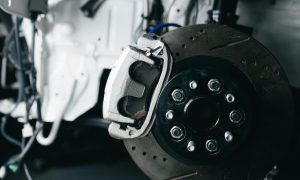Shopping for a used car online feels like scrolling through Netflix—you’ve got endless choices, shiny images, and promises that one of them is “the one.” It’s faster than hopping from dealership to dealership, and let’s be honest, who doesn’t love the convenience of searching from the couch with a cup of coffee in hand?
But with every opportunity comes a risk. The very same things that make online car buying easy—anonymity, speed, endless listings—are the exact tools scammers use to empty your wallet. And when cars cost thousands, the losses sting.
So, if you’ve been asking yourself, ‘What are the top tips to help used car buyers avoid online scams?‘ this guide is your seatbelt. It’ll keep you safe while you cruise through the wild west of online marketplaces.
The Appeal and Risks of Online Used Car Marketplaces
The online car marketplace has experienced significant growth over the past decade. Autotrader, Cars.com, Craigslist, Facebook Marketplace—you name it, they’ve made car shopping global instead of just local. Instead of being stuck with whatever’s parked on your local dealer’s lot, you can see what’s available three states over with a few clicks.
That’s the appeal. The risk? You’re often dealing with strangers. Unlike a dealership with a brick-and-mortar location and a business license, many online sellers are individuals you know nothing about. And some of them aren’t sellers at all.
According to the FBI’s Internet Crime Complaint Center, internet-based vehicle fraud caused over $50 million in losses in a single year. That’s not pocket change—it’s proof scammers are succeeding. And because cars are high-ticket items, even one mistake can wipe out your savings.
The convenience is absolute. The risk is real. Your job is to balance both.
Spotting Online Red Flags

Think of scammers like evil magicians. They rely on distraction and urgency to get you to ignore the obvious. Once you learn their tricks, it becomes easier to spot them a mile away.
Look closely at the photos. If every image looks like it came from a dealership brochure, be suspicious. Private sellers usually take pictures in driveways, parking lots, or on the street—not with perfect lighting and glossy edits.
Pay attention to urgency. “Selling today only” or “moving overseas tomorrow” are classic excuses. Scammers want you to move faster than your brain can process. Some even claim they’re in the military and being deployed—tugging on sympathy so you rush to help.
And then there’s communication. Genuine sellers pick up the phone. Fake ones insist on email or messaging apps only, dodging video calls or direct questions. If you feel like you’re chasing the seller instead of having a conversation, you’re already in dangerous territory.
Unrealistic Pricing and Market Discrepancies
Here’s a simple truth: cars don’t magically lose 60% of their value overnight. If you see a 2020 Honda Accord listed for $6,000, when the Kelley Blue Book value is closer to $18,000, something’s off.
Scammers know people can’t resist a “too good to be true” deal. It’s the bait on their hook. The problem is, once you bite, they reel you in with excuses like “I need payment in advance to hold it” or “shipping will be arranged after you wire the money.”
The solution is boring but practical: check the market value. Sites like Edmunds, Kelley Blue Book, or CarGurus provide average prices based on mileage and condition. A slight discount is fine—it could be a motivated seller. But a drastic discount? That’s not a deal; that’s bait.
Verifying the Vehicle and Seller Online
Once a listing passes the “smell test,” it’s time to check both the car and the person behind it. This step takes effort, but it separates buyers who drive away happy from those who end up empty-handed.
Validate the Seller’s Identity and Legitimacy
Start with the seller. Request their full name, phone number, and proof of identification. Cross-check it online. If they claim to live in Chicago but their phone number shows up as California, question it.
Genuine sellers usually have some digital footprint. They might have a LinkedIn profile, a Facebook page, or at least something that demonstrates their presence in the real world. Scammers? They disappear the second you start digging.
Title Verification and Ownership Records
The title is your golden ticket. Always ask to see it, and make sure the name matches the seller’s ID. If they say “the bank has it” or “it’s with my cousin,” that’s a red flag. No excuses here—the title should be clear and in their possession.
Many DMVs let you verify ownership records online. If not, a quick trip to your local DMV can confirm whether the title is clear or encumbered by loans. Spending an hour at the DMV is preferable to losing thousands to fraud.
The Imperative of Physical Inspection and Test Drive
Here’s where many online buyers slip: they trust photos and descriptions without ever touching the car. That’s like buying a pair of shoes without checking if they fit.
Arrange a Safe In-Person Meeting and Independent Mechanic Inspection
Always meet in a public space. Police departments often establish “safe transaction zones” for this exact reason. If the seller refuses, walk away.
Before exchanging money, invest in a mechanic’s inspection. A professional eye can uncover flood damage, hidden accidents, or even odometer rollbacks. Spending $150 on an inspection might feel annoying in the moment, but it can save you thousands in the long run.
The Essential Test Drive
A test drive isn’t optional—it’s essential. You need to feel how the car accelerates, brakes, and handles. Listen for strange noises, watch for warning lights, and test it on different road types.
If a seller refuses a test drive, it’s game over. No serious buyer should accept that condition. Think about it: would you buy shoes without trying them on? A car is ten times more personal and ten times more expensive.
Protecting Your Money from Fraudsters

Now let’s talk about the part that scammers really care about—your money. Cars are just the bait; payments are the prize.
Beware of Unsecured and Untraceable Payment Methods
Gift cards, wire transfers, or crypto? Huge mistake. Once you send those, you’ll never see that money again. That’s precisely why scammers love them.
Instead, stick to traceable payments, such as bank transfers, cashier’s checks, or PayPal (but only use Goods and Services, never Friends and Family). These create a record, and in some cases, offer protection if things go south.
Understanding and Safely Using Escrow Services
Escrow services can be a lifesaver. They hold your money until you confirm the car is delivered and as described. The problem? Scammers create fake escrow sites that appear professional but are designed to steal your money.
Only use recognized escrow providers, such as Escrow.com. Double-check the URL, and never click links the seller sends you. If the site looks cheap, has typos, or doesn’t use HTTPS, close the tab.
Check the Vehicle Identification Number (VIN)
The VIN is like the car’s DNA. With it, you can see accident reports, service history, recalls, and mileage verification.
Services like Carfax or AutoCheck cost about $40, but that’s nothing compared to the cost of buying a car with a hidden accident or a rolled-back odometer. If the seller dodges when you ask for the VIN, that’s your sign to walk away.
Conclusion
Buying a used car online isn’t impossible, and it doesn’t have to feel like a game of Russian roulette. The trick is blending patience with due diligence. Compare prices, verify titles, check VINs, insist on inspections, and never compromise on payment security.
So, when someone asks, What are the top tips to help used car buyers avoid online scams, the answer is simple: trust your gut, not just the listing. Excitement sells, but caution saves. Protect your money, and you’ll end up with keys in your hand instead of regrets in your inbox.
FAQs
Verify the seller, double-check the title, run a VIN report, insist on a test drive, and use secure payments.
No. Always meet in person and inspect the car in person. Remote-only deals are usually scams.
Yes, but only if you use trusted providers like Escrow.com. Avoid links that sellers send you.
It uncovers hidden problems—such as flood damage, tampered odometers, or poor repairs—that photos and sellers may not reveal.
Critical. The VIN reveals the car’s true history and protects you from purchasing a vehicle with hidden issues.





